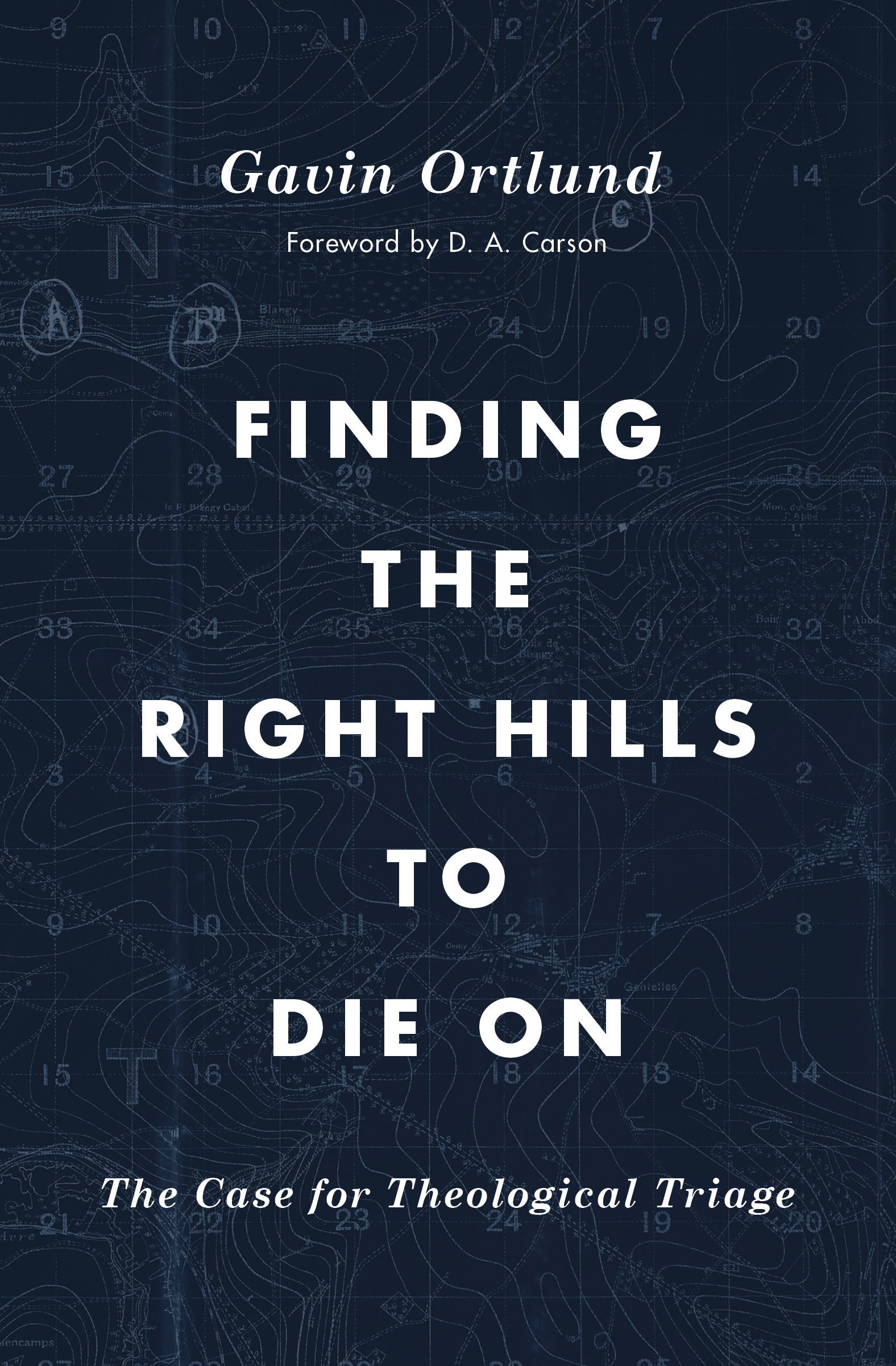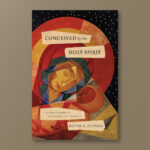Speak the truth in love.
Truth in love. Truth and love. One of these often dominates in theological conversations, some choosing to emphasize the need for truth and others the need for love. According to Paul, truth-telling and genuine love for those with whom we are speaking are crucial for growing up “in every way into him who is the head, into Christ” (Eph. 4:11–16). In other words, if you want to be like Jesus, you’d better learn how to speak the truth and to do so in a way that exhibits love for others.
Some like to think that speaking the truth just is loving. That is, to love someone is to tell them the truth. But is it that simple? Can I just declare truth to someone and, because it’s the truth, claim it’s also therefore “in love”? If that’s the case, then why would Paul need to modify the words “speaking truth”?

Finding the Right Hills to Die On: The Case for Theological Triage
Gavin Ortlund
Finding the Right Hills to Die On: The Case for Theological Triage
Gavin Ortlund
In theology, just as in battle, some hills are worth dying on and others are not. But how do we know which ones? When should doctrine divide, and when should unity prevail? Just as a medic on a battlefield treats the severely wounded first and then moves on to the less serious injuries, we must prioritize doctrine in order of importance. Pastor Gavin Ortlund implores us to cultivate humility as we prioritize doctrine into four ranks―essential, urgent, important, and unimportant―so that we will be as effective as possible at advancing the gospel in our time.
“In love” tells us how we are to speak truth. There is a way to speak truth that isn’t loving, and there’s a temptation to describe love that doesn’t include truth-telling. Both of these are errors, according to Paul. Instead, we must speak truth, doing so in a way that demonstrates our love for others.
If you want to be like Jesus, you’d better learn how to speak the truth and to do so in a way that exhibits love for others.
This combination is hard to produce, as church history can easily demonstrate. And with social-media spaces like Twitter filled with quote tweets, getting “ratio-ed,” muting and blocking, ad hominems, slippery slopes, and straw men, civil discourse—yes, including theological discourse—seems not just difficult but nearly impossible. Add a global pandemic into the mix where most people are even more bored, lonely, anxious, and “extremely online,” and the chances of productive theological conversations on social media are slim to none. It’s either truth or love these days. Certainly not both at once.
In this contentious environment Gavin Ortlund exhorts us to pursue both truth and love in his new book, Finding the Right Hills to Die On: The Case for Theological Triage. Ortlund—senior pastor of First Baptist Church of Ojai in Ojai, California—wants to find “the happy place” between the two extremes we often see in theological conversation: fighting over doctrine either “too much or too little” (17).
Doctrinal Sectarianism or Doctrinal Minimalism?
Ortlund spends Part 1 explaining why both doctrinal sectarianism and doctrinal minimalism are out of step with Scripture and the character of Christian theology.
Doctrinal sectarianism and doctrinal minimalism are out of step with Scripture and the character of Christian theology.
On the one hand, Scripture suggests an order of priority in our doctrinal thinking (cf. 1 Cor. 15:3), such that when we discuss topics that aren’t of the highest order, we should give our brothers and sisters who differ “latitude to disagree” (cf. Phil. 3:15; Rom. 14:1; 1 Cor. 1:17). Rather than wantonly separating from all who differ doctrinally from us, Ortlund asks whether or not we have “a ‘warm corner in our hearts’ for every single true Christian, even if we strongly disagree with him or her on various issues? . . . [I]f we love Jesus, we must love and embrace all who belong to him” (37).
Of course, there’s an opposite danger, that of doctrinal minimalism. In this scenario, surface-level unity between various groups is promoted at the expense of theological clarity. The problem is that “there is a sad poverty of awareness in . . . adopting an up-for-grabs mentality in which theology functions like the people in the book of Judges, when ‘everyone did what was right in their own eyes’” (54).
But this isn’t how Scripture speaks of doctrine, nor how we should think theologically about doctrine. Indeed, some doctrines are “of first importance” (1 Cor. 15:3), essential to salvation. But even if they aren’t essential to salvation or ecclesial unity, every doctrine is still important, because whatever God has spoken to us in Scripture is essential in some sense as part of his self-revelation.
In other words, brotherly love is important with respect to doctrine, and so is theological faithfulness. Most of us are tempted in one direction or the other, but Ortlund rightly reminds us that faithfulness to Christ means avoiding both of these errors.
It’s hard for me to overstate how important this little book is in today’s theological climate.
In Part 2, Ortlund attempts to provide a rubric of sorts for sifting the doctrinal sands and identifying primary, secondary, and tertiary doctrines. Regarding primary doctrines, Ortlund argues that we can identify them based on two criteria: if they “mark a fault line between the gospel and another ideology, religion, or worldview (as with the virgin birth)” (75) or if they “constitute a material point of the gospel (as with justification)” (76). “More simply,” Ortlund puts it, “some first-rank doctrines are needed to defend the gospel, and others to proclaim the gospel” (76). In order to adjudicate which doctrines fit these two criteria, Ortlund suggests asking four questions (79):
- How clear is the Bible on this doctrine?
- What is this doctrine’s importance to the gospel?
- What is the testimony of the historic church concerning this doctrine?
- What is this doctrine’s effect upon the church today?
Christian Love and Christian Theology
It’s hard for me to overstate how important this little book is in today’s theological climate.
On the one hand, plenty of Christians are ready to divide from anyone who disagrees with them. To this Ortlund repeatedly asks, “Do you truly love those with whom you disagree?” On the other hand, our culture’s obsession with “finding your truth” has so diluted doctrine that faithfulness is, for many, a matter of personal choice rather than holding fast to the faith once delivered to the saints.
Our culture’s obsession with ‘finding your truth’ has so diluted doctrine that faithfulness is, for many, a matter of personal choice rather than holding fast to the faith once delivered to the saints.
This book will help pastors, Sunday school teachers, and well-read congregants to train both themselves and also others how to think through doctrinal disagreements. Rather than certain tertiary doctrines splitting a church, this book may equip certain congregations to think about their disagreements over, say, the timing of Christ’s return as a way to sharpen each other in their love for the Lord. Instead of churches giving in to cultural trends on individualism or sexuality, this book will call us all again to faithfulness to God’s Word.
Wonderful Primer
Finding the Right Hills to Die On is a wonderful primer on theological faithfulness expressed from a posture of Christian love, and should be handed out to anyone interested in pursuing Great Commandment with their whole mind—along with their whole heart, soul, and strength.
Because when we love God not just with our minds but with our whole selves, we can truly love our neighbor, even when we disagree doctrinally.


































